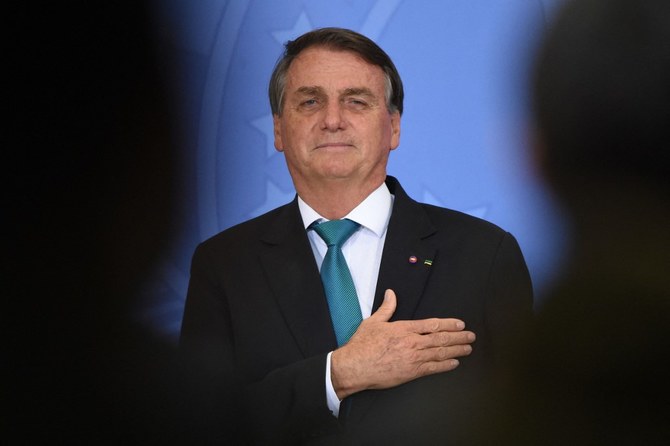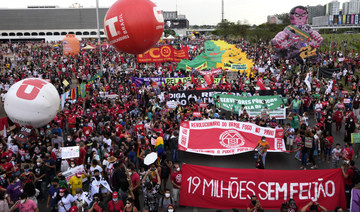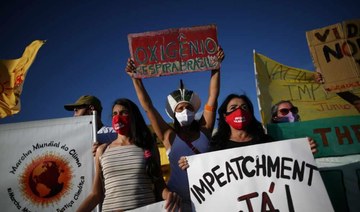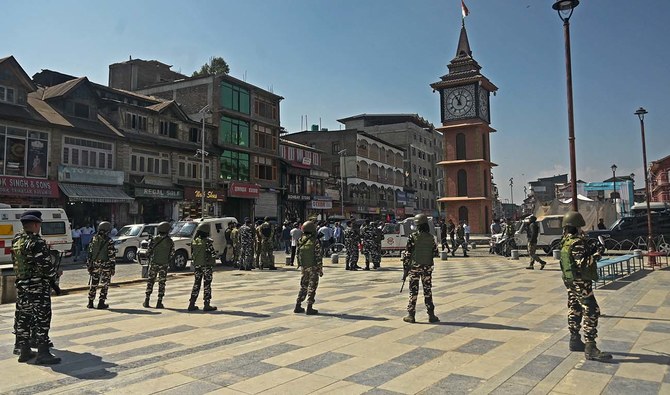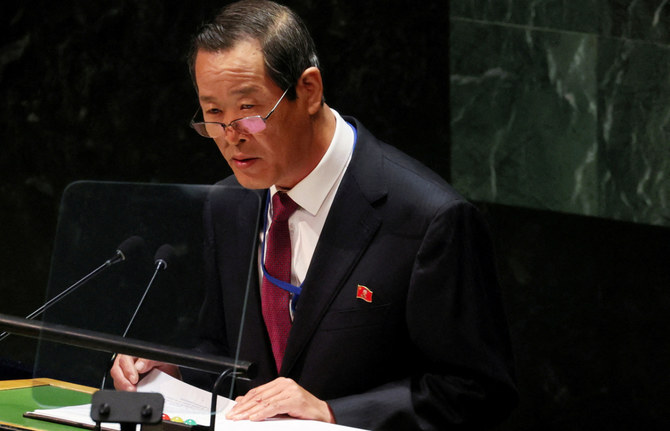With his approval rating at only 33 percent, Brazil’s far-right President Jair Bolsonaro has been facing street protests, organized by the opposition, in several cities across the country in recent months.
Demonstrators demanding his impeachment accuse him of mismanaging the pandemic; more than 600,000 people in the country have died of conditions related to COVID-19.
They are also unhappy that he has failed to lead the nation out of a persistent economic crisis that has resulted in rising inflation and an increase in the number of people living in extreme poverty, which has risen to 27.4 million.
The various Arab communities in Brazil have been viewing the protests in different ways. Historically one of the most relevant immigrant populations in the country, Arabs immigrants and their descendants account for 12 million, or almost 6 percent, of the 210 million people in Brazil, according to a 2020 study.
While Palestinian advocacy groups have been active in mobilizing the protests against Bolsonaro, more-conservative segments of the Arab community continue to support him. Even among these, however, criticism is growing.
“We have a rather diverse community, which is the result of different waves of immigration,” said pharmacology professor Soraya Smaili, the daughter of Lebanese immigrants who arrived in Brazil in the 1950s, and one of the founders of the Institute of Arab Culture, known as Icarabe.
“There was a first influx of Syrians and Lebanese at the end of the 19th century. Other large groups arrived after the Second World War and over the following decades.”
That first wave of Arabs from Syria and Lebanon moved to Brazil during the final decades of the Ottoman Empire, and most of them were Christian. The Arabs who have arrived since the 1940s have more diverse origins, and some are Muslim.
Each of these distinct groups have specific relationships with the issues concerning Middle Eastern countries, Smaili said.
“In general, the Arab Brazilians who are distant in time from the Middle Eastern reality tend to feel less insulted by Bolsonaro’s actions concerning the Palestinian issue, for instance,” she explained.
The Brazilian president’s much-publicized strong ties with Benjamin Netanyahu, the former Israeli prime minister, have a huge influence on how some Arab Brazilians see him.
During the 2018 presidential campaign, Bolsonaro pledged to transfer the Brazilian embassy in Israel from Tel Aviv to Jerusalem. Although this has yet to happen, his announcement was taken by many Arabs as an insult.
Also in 2018 he said that he would close the Palestinian embassy in Brasilia, on the grounds that “Palestine is not a country.”
“Especially among geographically concentrated Palestinian communities, like the ones that exist in cities such as Santana do Livramento and Foz do Iguacu, those facts generated great opposition to him,” said Yasser Fayad, a physician and member of the leftist Palestinian liberation movement, Ghassan Kanafani.
The grandson of Lebanese immigrants who came to Brazil in the 1940s from a region on the border with Palestine, Fayad is Muslim and feels deeply connected with the plight of the Palestinians. This fuels his disapproval of the Bolsonaro administration.
“The Brazilian far right emulates its European and North American counterparts, and thus is anti-Muslim,” he said.
That does not mean, however, that all Muslims in Brazil’s Arab community totally repudiate Bolsonaro, he added.
“Some of them are critical of his stance on Palestine but not of his domestic policies,” Fayad explained.
Reginaldo Nasser, a foreign relations professor at the Pontifical Catholic University of Sao Paulo, told Arab News that refugees from Syria and other nations who are part of the working class in Brazil comprise one of the most consistently anti-Bolsonaro groups of Arabs.
“They have a political identification with the excluded and the poor,” he said. “Besides, they feel the impact of Bolsonaro’s policies on a daily basis; he makes it hard for them to get into Brazil, to integrate into the society and to get a job.”
Nasser, whose grandparents came from Lebanon, does not believe that Arabs in Brazil really form a single community, given that there is a vast plurality of political ideas and economic interests among them.
“But we certainly can affirm that many in the younger generations are more conscious about the Middle Eastern reality than their parents and grandparents, and that reflects on their political views,” he added.
These political differences between Arab Brazilians created great divides during the most recent presidential campaign. The intense polarization, especially in 2018 and 2019, even caused conflicts with families.
“Most of my extended family supported Bolsonaro’s election,” said Nabil Bonduki, an architecture professor at the University of Sao Paulo. “Some of the ones who opposed him decided to leave the family’s WhatsApp group back then.”
Now, with Bolsonaro’s popularity in decline, many of his supporters simply do not talk about politics any more, according to Bonduki, who has served two terms as a city council member in Sao Paulo for the leftist Workers’ Party.
He said that Arab Brazilians have traditionally had a strong presence in the country’s politics, serving as congressmen, state governors and even president, in the case of Michel Temer, the son of Lebanese immigrants, who was in office from August 2016 until December 2018.
“Although some of them are progressive, the majority has always been more conservative,” Bonduki said.
Bolsonaro’s final opponent in the 2018 election was former Sao Paulo Mayer Fernando Haddad, a member of the Workers’ Party and the son of a Lebanese immigrant.
There have been no studies of how Arab Brazilians tend to vote. However Brazilians living in Israel mostly voted for Bolsonaro, while the ballots cast in Palestine were mostly in favor of Haddad.
In the opinion of Sheikh Jihad Hammadeh, vice president of the National Union of Islamic Institutions, Arab Brazilians, especially Muslims, are affected by the political atmosphere in the country just like all other social groups.
He said there were fierce political debates in his communities’ WhatsApp groups during and after the presidential election, and that he had to intervene at times to prevent further conflicts.
“We always tell people that they need to be respectful,” said Hammadeh. “Each one of us can have a distinct political opinion. As Muslims, we must respect each other’s views.”



